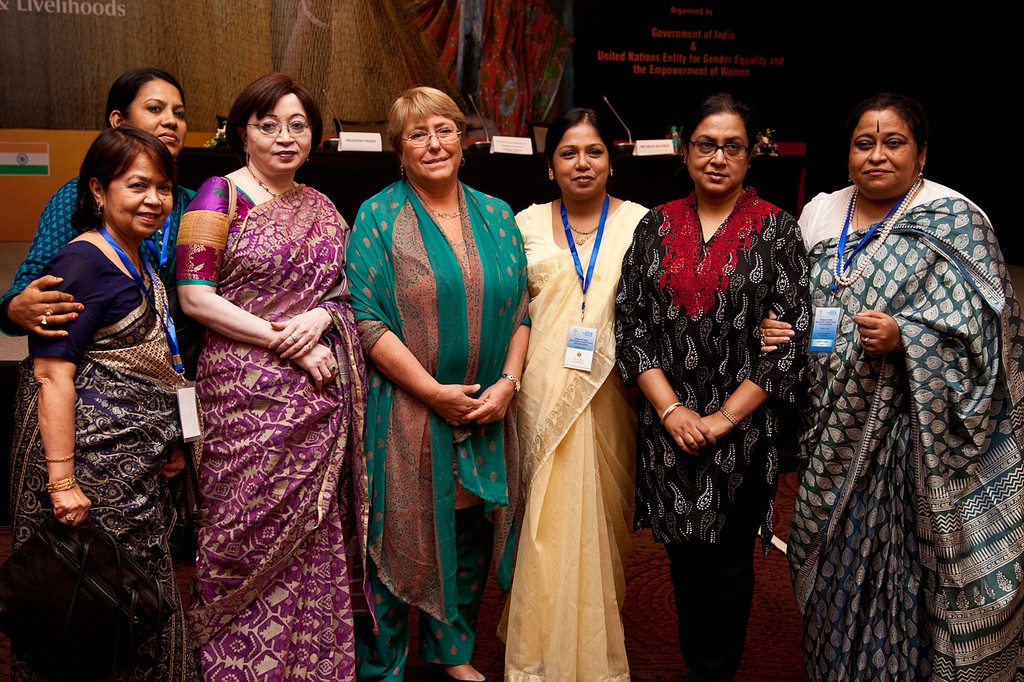Although science has never found a link between biology and leadership qualities, women in leadership is often treated as an open question. Perhaps because women have been barred from leadership roles for so long, both by custom and law, many people publicly question the quality of candidates in a pool made up exclusively of women.
The question is rarely handled directly, but is usually tacked on to other issues as a kind of ‘rider issue’. In the aftermath of the tragic death of Tom Palermo, numerous commentators, both on this site and elsewhere, have raised the question of specifically hiring a woman for a Bishop position.
One comment that has come out of this tragedy. The authors name is redacted for privacy.
The argument made is that by excluding men from consideration, the Church made a modest or significant sacrifice in qualifications, purely in order to hire a woman. The employed church is primarily male; males constituted 66% of all active clergy, and females only 34% in 2012. (The State of the Clergy report by CPG) In this context, one can view the exclusion of men from certain postings as an attempt at creating a more diverse Church.
While the suitability of Bishop Cook is being officially questioned by the Church, it should not rest on her biological sex. She was hired in a competitive process, matched against 3 highly qualified candidates, all women, for the position of Bishop Suffragan. There is no indication that the 4 women, all of whom had impressive backgrounds, were unsuitable for the position, or that the Diocese faced any difficulty in finding highly qualified women candidates. This type of comment is revealing of inherent biases which are largely unchallenged.
This bias is unsupported by evidence. Intelligence testing is a controversial measure of real-world capabilities, but women now score higher than men on average. James Flynn, a world-renowned expert in IQ testing, suggests that women historically scored worse because of discrimination and bias against them in society.
From a Telegraph article about his findings:
“This improvement is more marked for women than for men because they were disadvantaged in the past.”
Furthermore, new research, based on an earlier study from 2010, finds that groups containing a majority of women perform better on simulated real-world tasks than groups with equal or minority representation of women. Writing in an op-ed for the New York Times, Anita Wooleley, Thomas W. Malone, and Christopher Chabris documented their research into collective intelligence and group problem-solving. They found that three major factors could be accurately used to predict success on a variety of tasks.
From the op-ed:
First, their members contributed more equally to the team’s discussions, rather than letting one or two people dominate the group.
Second, their members scored higher on a test called Reading the Mind in the Eyes, which measures how well people can read complex emotional states from images of faces with only the eyes visible.
Finally, teams with more women outperformed teams with more men. Indeed, it appeared that it was not “diversity” (having equal numbers of men and women) that mattered for a team’s intelligence, but simply having more women.
Factors that did not contribute to success included high average IQs, or the presence of brilliant individuals in the work group. These findings agree with traditional advice given by successful business leaders that patience, listening, and humility are integral to success.
Derek Thompson, senior editor at The Atlantic, wrote about the study and the phenomenon in an article titled “The Secret to Smart Groups Isn’t Smart People–It’s Women”. He summarizes the findings and explained how a skill called “social sensitivity” was the single-most important prediction of success.
From the article:
Furthermore, the predictable troupe of buzzwords you would expect to correlate with successful groups—”cohesion,” “motivation,” and “satisfaction”—didn’t have much to do with effective teams, either. Instead, the single most important element of smart groups, according to the researchers, was their “average social sensitivity.” That is, the best groups were also the best at reading the non-verbal cues of their teammates. And, since women score higher on this metric of emotional intelligence, teams with more women tended to be better teams.
In our grief at the tragic death of Tom Palermo, it’s understandable that people are thinking about what factors led to his death, and how we can collectively prevent future tragedies. What is less understandable is treating this as a referendum on the ability of women to lead and be authorities. It ultimately derails the important conversations that need to happen about safety, alcoholism, and even the particulars of church policy in appointing and selecting leaders. These are all important issues, and the general questioning of women’s qualifications makes it difficult to discuss them. It’s very difficult to speak in support of women in leadership because of the tragic death of Mr. Palermo, but it’s important that we push back against the conflation of all women in leadership with the unfortunate actions of an individual woman. Suggesting that Cook’s actions give credibility to criticisms of women in leadership is inaccurate, unsupported, and opportunistic.
Do you see evidence of this bias in your interactions and conversations? Are you cheered to find that women’s contributons can be measured and demonstrated? If you’re in charge of forming groups and assigning work, will this change how you manage employees?
Posted by David Streever

